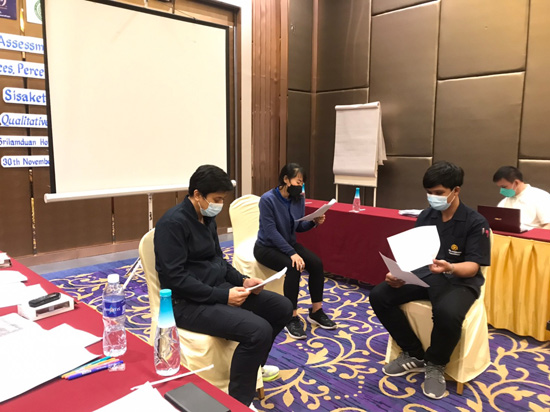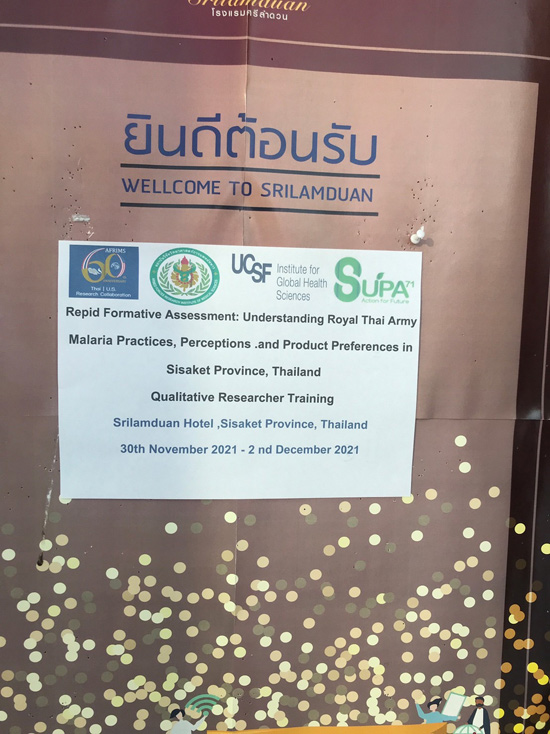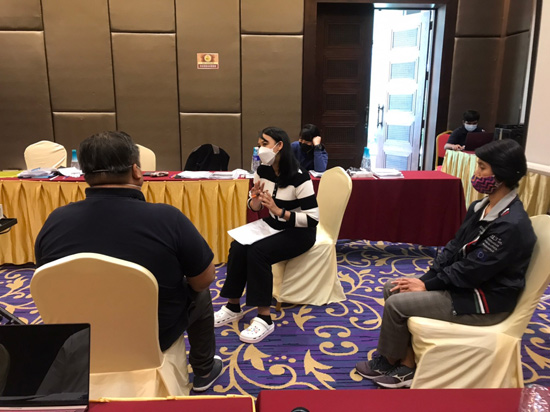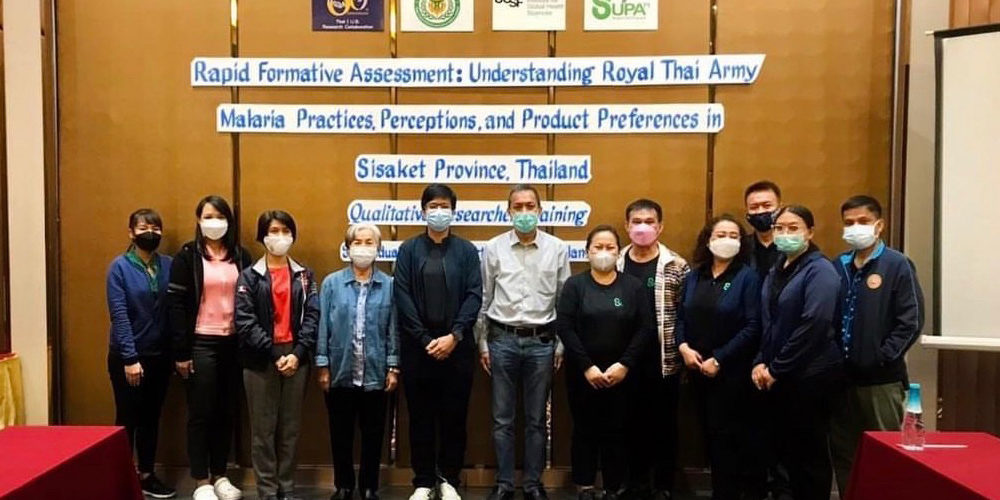SUPA71 provided qualitative training for the Royal Thai Army (RTA) research team to implement data collection at the military stations in Sisaket province of Thailand. The training was organized at a hotel in the Muang district of Sisaket province. SUPA71 core team members consisted of our qualitative research managers and professors from various academic institutions, such as the Faculty of Nursing, Khon Kaen University, Faculty of Public Health, Mahasarakham University, and School of Health Science, Mae Fah Luang University.
This project has been supported to SUPA71 by The Global Health Group at the University of California, San Francisco (UCSF), Institute of Global Health Sciences of the Malaria Elimination Initiative (MEI). The UCSF MEI has received funding from the US Defense Malaria Assistance Program (DMAP) to support the Royal Thai Army-Armed Forces Research Institute of Medical Sciences (RTA-AFRIMS) to improve military-civilian cooperation toward national malaria elimination in Thailand. The long-term aims of the collaboration between DMAP, RTA-AFRIMS, and the MEI are to support the formation of more robust partnerships between the Ministries of Health and Defense and between the military and civilian sectors to achieve national and regional malaria elimination targets and to inform best practices for military-civilian operations in the region and elsewhere.
Next steps for this project, SUPA71 and RTA teams have to conduct data collection activities at fields with target respondents, such as military and public health personnel, in Sisaket and Yala provinces.




